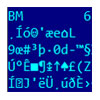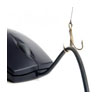
TDSS Rootkit and DNSchanger: An Unholy Alliance
The TDSS rootkit has proven to be more pliable and adaptable than a campaigning politician, and attackers have used it in various forms for the last three or four years for all sorts of different attacks. It shows up in drive-by downloads, targeted attacks and just about everything in between, and one of the newer jobs it’s been assigned is to deliver the DNSchanger Trojan.











